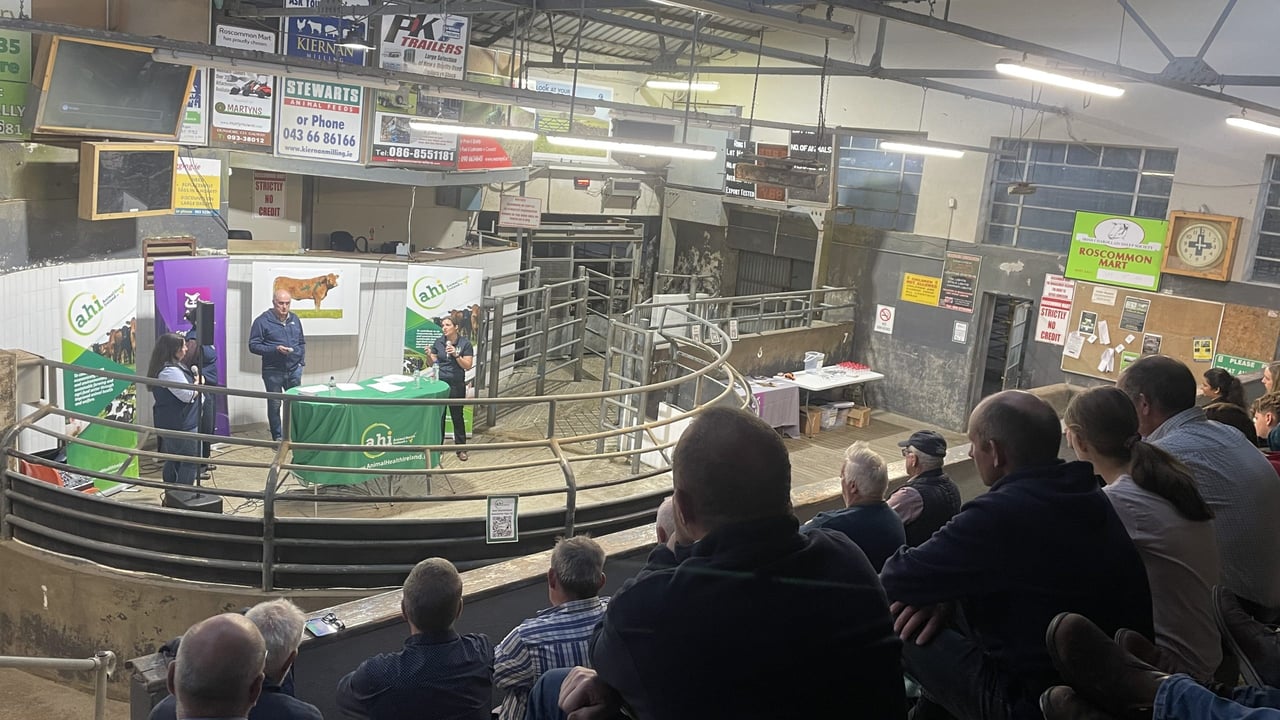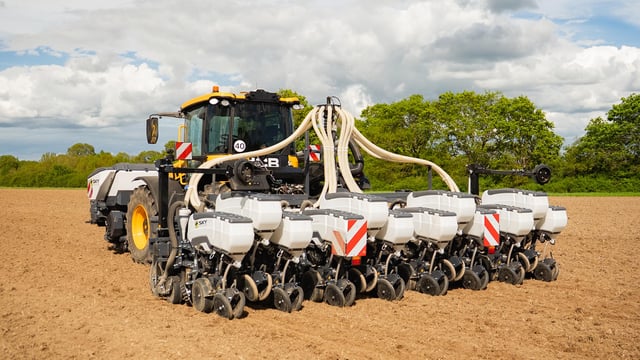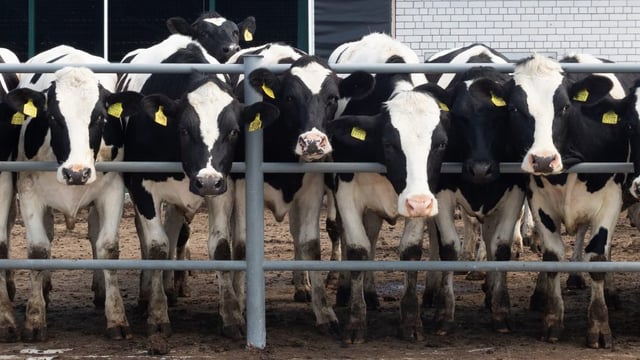Winter housing tips for suckler herds highlighted at mart events
Suckler farmers gathered at Roscommon Co-Operative Livestock Mart on Monday evening, August 25, for the first of three suckler herd weanling advice events at marts across the west of Ireland.
The events titled: 'Weanling Week – Worth Their Weight in Gold' were hosted by Animal Health Ireland (AHI) and supported by AIB.
Agriland was in attendance at the Roscommon event, which was well attended with a main focus on all matters relating to suckler herd health.
The speakers at the event were as follows:
- Eilish Gill: Sustainable parasite control in grazing ruminants (SPARC) project officer;
- Michelle McGrath: Programme manager CalfCare and Hoof HealthCheck;
- John O'Rourke: All Creatures Veterinary Surgery, Co. Roscommon;
- Dr. Natascha Meunier: Beef HealthCheck Programme Manager;
- Nicola Featherstone: AIB.
The speakers discussed the importance of mineral supplementation in cows in advance of calving and the benefits of feeding hay, silage or rolled oats and cal-mag minerals in autumn to avoid the risk of tetany cases.
Michelle McGrath discussed factors impacting weanling health and how to avoid cases of pneumonia in weanlings.
Veterinary practitioner in the region, John O'Rourke noted that there will be a lot of overfat in-calf suckler cows this autumn and into winter with the good weather conditions all summer and the good quality silage made this year.
He advised farmers to monitor the body condition of their cows in advance of calving to reduce issues during that period.
The local practice vet told farmers that that vaccination is "like an insurance policy" and strongly encouraged them to have a vaccination plan in place for their herds.
He also emphasised the importance of good ventilation in reducing instances of pneumonia, and was highly critical of the ventilation sheeting seen on many standard cattle sheds.
He said that this sheeting does not allow for sufficient airflow and encouraged farmers to instead use Yorkshire boarding as ventilation in their sheds.
As well as this, he also emphasised more practical measures like cleaning drinkers regularly and ensuring clean, fresh lying spaces for weanlings free from ammonia smells as being essential in good animal health.
O' Rourke also highlighted the risks associated with calving facilities on farms with little/no grip for cows' feet post-calving.
He said that if cows slip when trying to get up after calving it can cause a series of issues, adding that a good calving area needs plenty of grip to give a cow confidence in getting on her feet after calving.
AHI's Dr. Natascha Meunier discussed worms and fluke in cattle and advised farmers to observe cattle for signs of lungworm and to contact their vet if cattle are still coughing post-treatment.
Eilish Gill gave advice on the best time to take a dung sample from cattle, which she said is usually early in the morning as cattle tend to stretch and dung after lying for a period of time.
She also advised farmers to get these samples to the lab for testing without delay to ensure an accurate faecal egg count (FEC).
AIB's Nicola Featherstone discussed a range of financing options available from the bank for farmers.
The event drew to a close with a questions and answers session and light refreshments.





